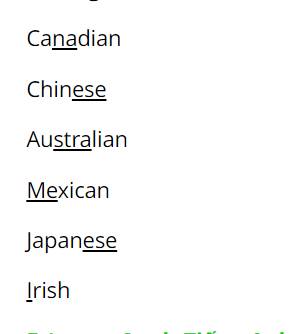Hãy nhập câu hỏi của bạn vào đây, nếu là tài khoản VIP, bạn sẽ được ưu tiên trả lời.

I have to meet clients.
(Tôi phải gặp khách hàng.)
I have to stop smoking.
(Tôi phải dừng hút thuốc.)
I often have to grab a hamburger.
(Tôi thường ăn một cái bánh hamburger.)

shrink/shr/ twin/tw/ problem /pr/ scream/scr/ adopt/pt/ address/ddr/ three/thr/ next/xt/ against/st/ hops/ps/

She told me that her right ankle was hurting ...; She said she hadn’t twisted it... she couldn’t put any weight on it; ... I had watched a really good video clip ... the day before; I told her she must watch it; she said she had come across ...; She said that after she’d finished watching it, she had thought about sending me the link.
- Changes to pronouns (Thay đổi đại từ): I → she
- Changes to possessive (Thay đổi tính từ sở hữu) : my → her,
- Changes to references to time (Thay đổi tham chiếu thời gian): yesterday → the day before




Gợi ý:
The pronunciation of than and as in the sentences: weak. (Phát âm của từ than và as trong câu yếu)
Nội dung bài nghe:
- Greece is hotter than the UK.
- It isn’t as warm as yesterday.
- Yesterday, London was as hot as Athens.
- Libya is far / much hotter than Canada.
Hướng dẫn dịch:
- Hy Lạp nóng hơn Anh.
- Hôm nay không ấm như hôm qua.
- Hôm qua London nóng như Athens.
- Libya nóng hơn Canada nhiều.